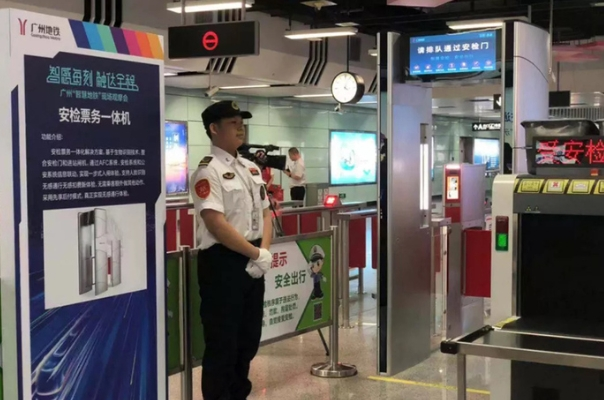
Guangzhou has officially enacted the Guangzhou Urban Rail Transit Security Inspection Regulations (hereinafter referred to as “the Regulations”), which came into effect on May 9, 2025. The new rules will remain in force for five years.
The Regulations apply to all entities involved in conducting metro security inspections within Guangzhou’s administrative area, as well as individuals entering metro stations.
The document outlines a clear process for security screening, structured in four stages: guidance, inspection, classification, and handling. Inspection equipment includes conveyor-style scanners, walk-through metal detectors, handheld detectors, liquid scanners, and explosive detectors. Under the guiding principles of comprehensive checks, simultaneous passenger and baggage screening, and strict scrutiny of suspicious cases, all passengers and their belongings are subject to inspection upon entering stations.
During routine procedures, passengers will be guided to walk through metal detectors while their luggage or bags are placed in the scanner for screening. If any suspicious or prohibited items are identified—or if the nature of an item is unclear—passengers will be asked to cooperate for further inspection of their belongings or person. Additional tools such as explosive detectors, liquid hazard scanners, and metal detectors may be used during secondary inspections. If a passenger triggers an alarm, further checks will focus on the alerted area.
If an item is preliminarily identified as prohibited, it will be secured and separated from the passenger. Authorities will immediately report the case to station management and on-site police, who will then handle the situation accordingly. If the item is deemed restricted but not prohibited, passengers will be advised either to discard the item voluntarily or to leave the station with it before reentering.
Special Measures for Vulnerable Groups
The Regulations also allow for flexible inspection procedures for special groups, such as pregnant women, students under 1.3 meters tall wearing school uniforms and holding student discount tickets, and individuals with mobility challenges. These groups may undergo a combination of handheld scanning and visual inspection as deemed appropriate.
However, they are still required to assist in having their baggage scanned through standard equipment. In cases where certain items cannot be examined with typical devices due to size or material, alternative methods like handheld scanning will be used.
Crowd Control Measures for Peak Times and Emergencies
To address situations like peak travel periods, severe weather, or equipment failure, which may lead to overcrowding at security checkpoints, metro operators are instructed to maintain order, enhance crowd management, and, if necessary, implement temporary measures such as passenger flow restrictions or station closures.
![]()


Source: OneTubeDaily





 京公网安备
京公网安备